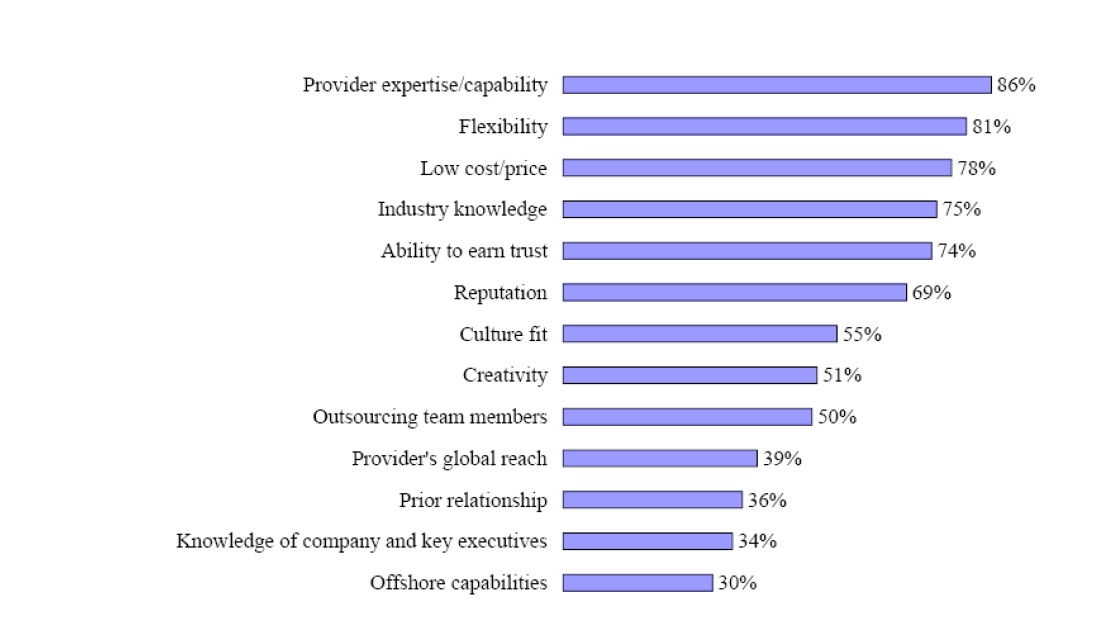Organisations are continually thinking of about how best to produce, market, and distribute a product or service and ask themselves whether they truly need to own all the processes within their companies. The academic literature helps to explain the circumstances under which decisions, on contracting some production activities with an unrelated party, and/or splitting production activities across different locations, are taken. This can in turn provide useful information on factors behind the increase in the phenomenon of offshoring in recent years and the prospects for its future.
Reasons for offshore outsourcing are usually related to costs, access to technology or access to scarce resources such as skilled labour. According to Hormozi et al (2003), the major motivations for outsourcing of IT in the client’s own home country, has primarily been driven by cost consideration. Although offshoring is also driven by similar incentives, several recent trends in the global economy are making it a more attractive option, and quite often even a necessity for firms in the western countries. There are a number of reasons why firms prefer international outsourcing to domestic outsourcing. These may be « pull » or « push » factors. In one hand, « Pull » factors are those attributable to the vendor countries and they include costs, government incentives, abundance of highly skilled resources, etc. on the other hand, « push » factors can be attributed to the countries that are sending work to the offshore countries and include shortage of skilled resources, bandwagon effect, etc.
However, it is a misleading view that firms go offshore only to reduce costs. For one, 85% of U.S. service offshoring is with other OECD countries. For another, many firms enter foreign markets to improve access to skilled workforces, to enter rapidly growing markets and to be closer to customers (Trefler, 2005). Access to a workforce in different time zones across the globe may enable companies to conduct work around the clock and consequently meet worldwide customer needs.
Establishing a presence in foreign countries can provide companies access to overseas markets. Accenture (2004) reports that lowering costs is only third on the list of the most important factors in choosing an offshore outsourcing provider (See figure 3). The first two are service providers’ expertise and/or capability and service providers’ flexibility. What is most interesting about the list in figure 3 is that most of the items cannot be easily codified or written down in a contract.

Figure 3 : Importance of Factors in Choosing an Offshore Outsourcing Provider Source: (Accenture, 2004)
